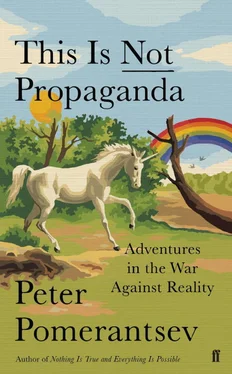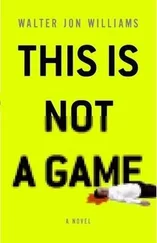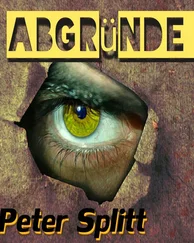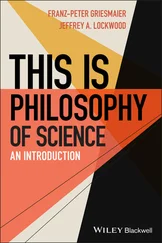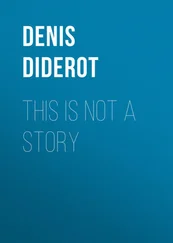In May the separatists took power in Severodonetsk. The local administration welcomed them, took down the Ukrainian flag and replaced it with the tricolour of the Luhansk People’s Republic. The thing that hurt Babar the most was that when the separatists came for him, they only sent three men. When he had been arrested back in the 1990s the cops had sent three vans with SWAT teams wearing flak jackets. Now there were just three guys with guns who put him on a train to Kiev. His attempt to fight his own version of a one-man information war had failed. In a sense he’d tried to reverse-engineer the Russian approach: first spread disinformation to confuse the enemy, then use irregular forces, gangsters and mercenaries to hold a town. But the Ukrainians were still too slow to cotton on.
A few months later the Ukrainian military finally arrived, now reinforced by patriotic and ultra-nationalist volunteer battalions (including the Pravy Sektor). The army surrounded Severodonetsk and lobbed heavy artillery at it. The separatists hoped the Russian military would intervene, but no one seemed to care enough about holding ‘Sever’: they pulled back to the heartlands of their new republics, the areas around the cities of Donetsk and Luhansk. Babar returned home. But when we talked in 2015, he felt little sense of victory. The same politicians and cops who had backed the separatists were still running the town. Some of the Ukrainian soldiers and volunteer battalions had alienated the locals: there had been a shooting during a bar brawl; one of the volunteer battalions had decided to enforce their authority over the local mafia by forcing a gangster to swim across a river and then shooting him in the head when he was halfway across. This wasn’t how you built coalitions.
I asked him what his plans for the future were. He told me that the financial crash that came with the war meant his old website development orders had disappeared. He wanted to set up media literacy classes for local people, but for the moment would do anything, even hauling crates, to get by. I asked him what his ‘media literacy classes’ would involve. He explained they would teach people how to check whether a piece of news online is real, to check it for the reliability of sources, to use a reverse image search to verify pictures were from where they claimed to be from.
Hadn’t he used disinformation himself when he ‘nightmared’ the separatists with his fake rumours? How did he square that with promoting media literacy campaigns?
Babar smiled. ‘I believe in disinformation for the other side and media literacy for my side.’
*
Information vigilante groups were sprouting in Ukraine, and I wanted to know what it was like to be on the receiving end of their campaigns.
‘R u still alive you separatist? I wonder how long for?’ said the SMS on Andrey Shtal’s pre-smartphone-era mobile. ‘As always, there’s no number to trace it back to,’ said Andrey. He seemed used to the messages and was more worried that activists from self-declared ‘civic information war groups’ had put him on a list of ‘traitors’ but given an old address. ‘What if they go round and beat up the person living there now, someone totally unrelated to any of this?’
Andrey was from Kramatorsk, just south of Severodonetsk. Like Sever, it had first been taken by Russian proxies and then retaken by Ukrainian forces. He worked at the Kramatorsk municipal gazette. When the proxies took Kramatorsk and announced it part of the Donetsk People’s Republic, most of the staff fled, and Andrey stayed on as the editor. His paper published information about sewers and roadworks and schools – nothing political – and he never strayed into anything that was off-topic. This saved him when the Ukrainian army took the town back. He was arrested by a pro-Ukrainian volunteer battalion in Dnipropetrovsk. They beat him and held him for three days with a bag over his head, but eventually he was released.
It’s Andrey’s poetry, rather than his journalism, that gets him in trouble with the patriotic activists.
‘In poetry I can be myself. The head of the Donetsk People’s Republic likes my poetry and improvises verses back over Facebook.’
We walked across Kramatorsk’s tidy city park and down a grand, neo-classical Soviet avenue to a local cafe with Wi-Fi so we could look up his poetry. In the distance we could see the sun shining off the hills of the Donbas.
There were dozens of pages of Andrey’s lyrics on local poetry portals. We clicked through to his most recent work. It started with satires on the Maidan, done in the style of a Soviet children’s poem:
They will create hell here and horrid night,
And turn you, my hero, into a sodomite.
‘I was against the Maidan,’ Andrey tells me. ‘I sensed straight away it would lead to war. I get premonitions of the future sometimes.’ He had grown up with the young men who joined the proxy Russian forces in Kramatorsk. In his poetry he conveys the careless, chaotic way they decided to take up arms. ‘They were local druggies and gangsters, the kids of policemen and officials. How could I hate them? Nobody can hear the Donbas.’
‘Nobody can hear the Donbas.’ I heard that phrase often in the east, a catchphrase expressing the sense that politicians in Kiev didn’t understand local needs.
As the conflict spread east Andrey’s poems became more grim:
I used to be a musician and artist,
But now I woke up as a separatist…
I live in Rus, Rus isn’t dead yet!
What I wish for is a bullet in the prime minister’s head! [15]
Much of Andrey’s poetry evokes Soviet motifs and songs. He is haunted by a memory from his teens, when he was on a school trip to Lithuania in 1991 and witnessed the crowds trying to pull down the statue of Lenin. On the long train journey back to Donetsk he wrote his first poem, an allegory of the Soviet Union as a train that has become too old, and of a country falling into civil war.
‘Lenins were falling then, and they are falling again now,’ he sighs. ‘Back then I already had a bad feeling about the future.’
When we met in Kramatorsk, the government in Kiev had just passed laws forbidding Soviet street names and symbols. The Lenin statue in the central square had been pulled down, leaving an empty plinth with a Ukrainian flag tacked on. Officials argued the street name changes and statue demolitions were a necessary part of the information war with the Kremlin, with its non-stop diet of Soviet movies and social media campaigns that reframe the present as an endless Second World War against eternally returning fascists. But the laws could also play into the Kremlin’s hands, shifting the focus of the Maidan from the search for a better future to a battle over a past that could only ever be divisive.
‘The Communists built everything here. Anyone who achieved anything was from the party – why should we forget them?’ complained Andrey. ‘There are a lot of people here who can’t show what they think openly. They live online instead, and it’s important for them not to be lonely. I can formulate what they feel.’
By embracing and parroting back the language of the Kremlin, Ukrainian information warriors risked playing Moscow’s game. You were on either this or that side of an information conflict, either a traitor or a patriot. And this was just the sense of division that the Kremlin needed to foster its very real war. How could society hold together?
I started to get more of a sense in Odessa, the scene of my father’s arrest, where the full-spectrum, non-linear, hybrid, ambiguous, next-generation war had one of its most deadly moments.
*
When Igor had been arrested in Odessa in 1976, the media that was accessible in the city was strictly censored. Today Odessa boasts fourteen local TV cable channels alone, not to mention the dozens of Ukrainian and the hundreds of international ones available in most free-to-air packages. Online there are dozens of local news sites and masses of social media groups.
Читать дальше
